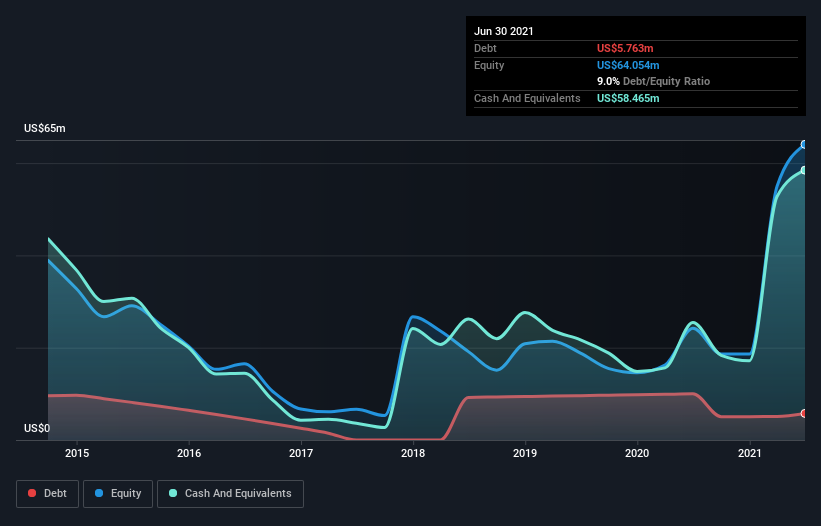Is Celsion (NASDAQ:CLSN) Using Debt In A Risky Way?
Warren Buffett famously said, 'Volatility is far from synonymous with risk.' When we think about how risky a company is, we always like to look at its use of debt, since debt overload can lead to ruin. Importantly, Celsion Corporation (NASDAQ:CLSN) does carry debt. But the more important question is: how much risk is that debt creating?
Why Does Debt Bring Risk?
Debt and other liabilities become risky for a business when it cannot easily fulfill those obligations, either with free cash flow or by raising capital at an attractive price. Ultimately, if the company can't fulfill its legal obligations to repay debt, shareholders could walk away with nothing. However, a more usual (but still expensive) situation is where a company must dilute shareholders at a cheap share price simply to get debt under control. Having said that, the most common situation is where a company manages its debt reasonably well - and to its own advantage. The first step when considering a company's debt levels is to consider its cash and debt together.
See our latest analysis for Celsion
What Is Celsion's Net Debt?
You can click the graphic below for the historical numbers, but it shows that Celsion had US$5.76m of debt in June 2021, down from US$10.00m, one year before. But on the other hand it also has US$58.5m in cash, leading to a US$52.7m net cash position.
How Healthy Is Celsion's Balance Sheet?
The latest balance sheet data shows that Celsion had liabilities of US$5.38m due within a year, and liabilities of US$13.6m falling due after that. Offsetting these obligations, it had cash of US$58.5m as well as receivables valued at US$1.85m due within 12 months. So it can boast US$41.4m more liquid assets than total liabilities.
This surplus liquidity suggests that Celsion's balance sheet could take a hit just as well as Homer Simpson's head can take a punch. On this view, lenders should feel as safe as the beloved of a black-belt karate master. Succinctly put, Celsion boasts net cash, so it's fair to say it does not have a heavy debt load! The balance sheet is clearly the area to focus on when you are analysing debt. But it is future earnings, more than anything, that will determine Celsion's ability to maintain a healthy balance sheet going forward. So if you want to see what the professionals think, you might find this free report on analyst profit forecasts to be interesting.
In the last year Celsion's revenue was pretty flat, and it made a negative EBIT. While that's not too bad, we'd prefer see growth.
So How Risky Is Celsion?
By their very nature companies that are losing money are more risky than those with a long history of profitability. And the fact is that over the last twelve months Celsion lost money at the earnings before interest and tax (EBIT) line. Indeed, in that time it burnt through US$16m of cash and made a loss of US$22m. Given it only has net cash of US$52.7m, the company may need to raise more capital if it doesn't reach break-even soon. Overall, its balance sheet doesn't seem overly risky, at the moment, but we're always cautious until we see the positive free cash flow. There's no doubt that we learn most about debt from the balance sheet. But ultimately, every company can contain risks that exist outside of the balance sheet. For instance, we've identified 5 warning signs for Celsion (2 are potentially serious) you should be aware of.
If you're interested in investing in businesses that can grow profits without the burden of debt, then check out this free list of growing businesses that have net cash on the balance sheet.
This article by Simply Wall St is general in nature. We provide commentary based on historical data and analyst forecasts only using an unbiased methodology and our articles are not intended to be financial advice. It does not constitute a recommendation to buy or sell any stock, and does not take account of your objectives, or your financial situation. We aim to bring you long-term focused analysis driven by fundamental data. Note that our analysis may not factor in the latest price-sensitive company announcements or qualitative material. Simply Wall St has no position in any stocks mentioned.
Have feedback on this article? Concerned about the content? Get in touch with us directly. Alternatively, email editorial-team (at) simplywallst.com.

